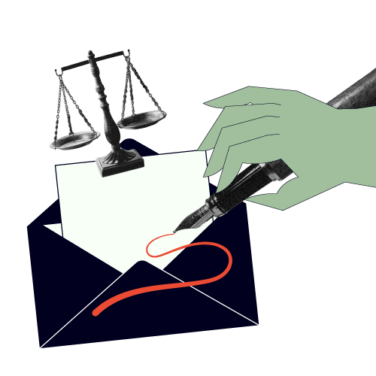Ever wondered how the legal world keeps its financial house in order? Behind every successful law firm, there's a skilled legal billing specialist ensuring that every billable hour is accounted for, and every client is billed accurately.
If you're detail-oriented, love working with numbers, and adept at legal billing software, and want to play a crucial role in the legal industry, then becoming a legal billing specialist might just be your perfect career path.
Let's dive into what it takes to break into this specialized field and how you can become the backbone of legal finance!
What Is A Legal Billing Specialist?
A legal billing specialist is someone who handles the billing and invoicing for a law firm. They keep track of the hours that lawyers work on different cases, make sure those hours are billed correctly to clients, and send out invoices. They also follow up on unpaid bills and make sure payments are recorded properly. In short, they help law firms get paid for the work they do.
Job Market Outlook for Legal Billing Specialists
The job market outlook for legal billing specialists is generally positive, as law firms and legal departments continue to rely on skilled professionals to manage their billing processes efficiently. With the ongoing need for accurate financial management in the legal industry, demand for these specialists is expected to remain steady.
As law firms adopt more specialized and digital billing systems, there's a growing need for professionals who are not only detail-oriented but also tech-savvy. While opportunities may be more concentrated in larger firms or urban areas, those with experience and up-to-date skills should find solid prospects in this field.
Here are some relevant points:
- Job Growth: Data USA states that 474k billing and posting clerks were employees across the US in 2022, a category that includes Legal Billing Specialists. The position is projected to grow by 0.0219% over 10 years (2022-2032).
- Demand Factors: The demand for Legal Billing Specialists is influenced by the legal industry's ongoing need for precise billing practices and the adoption of more sophisticated legal billing practices. As law firms and legal departments expand, the need for billing specialists remains steady.
- Salary: The average annual salary for a Legal Billing Specialist in the U.S. is around $50,000, with variations depending on experience, location, and the size of the law firm.
What Do Legal Billing Specialists Do?
Legal billing specialists make sure that law firms get paid for their work. They keep track of how many hours lawyers spend on each case, make sure those hours are billed correctly, and send out invoices to clients.
Legal billing specialists also follow up if clients haven't paid their bills, make sure payments are recorded, and sometimes help answer any questions clients might have about their bills. Their job is all about making sure the money side of things runs smoothly.
What Are the Responsibilities of a Legal Billing Specialist?
Responsibilities of a legal billing specialist include:
Daily Tasks
- Track and record lawyers' billable hours.
- Generate and review invoices for accuracy.
- Respond to client inquiries about bills and payments.
- Process and apply payments to client accounts.
- Monitor and follow up on overdue payments.
Weekly Tasks
- Reconcile billing discrepancies and make necessary adjustments.
- Prepare and distribute weekly billing reports to management.
- Review and update client billing information as needed.
Monthly Tasks
- Conduct a thorough review of all invoices before sending them to clients.
- Prepare monthly financial reports on billing and collections.
- Meet with lawyers or management to discuss billing issues or discrepancies.
- Update billing rates as required.
Yearly Tasks
- Assist with year-end financial audits related to billing.
- Review and update billing procedures and policies.
- Conduct a year-end review of client accounts and make necessary adjustments.
- Prepare annual reports on billing performance and client payments.
On top of all that, understanding how a 6-minute increment chart for billing works is essential for any aspiring legal billing specialist.
How To Become A Legal Billing Specialist
To become a legal billing specialist, you can follow these steps:
Legal Billing Certification
Legal billing certification can set you apart in the competitive legal billing field, signaling to employers that you have specialized knowledge and a commitment to the profession. Along with an associate degree or diploma in accounting or a related field, pursuing a bachelor’s degree in a business discipline can further enhance your expertise, making you a more attractive candidate to potential employers.
These educational qualifications not only provide foundational skills but also open doors to advanced certifications that can boost your career prospects.
Training
Specialized training is key to becoming proficient in legal billing. Many institutions offer certificate programs focused on legal billing practices, which include understanding legal billing codes, invoicing procedures, and compliance with legal regulations. Online courses are flexible and can be tailored to fit your schedule. Practical knowledge of legal billing software like Soluno, TimeSolv, or LawPay is essential, as these tools are widely used in the industry.
Continuing Education
The legal field is constantly evolving, and so are billing practices and software. To stay competitive, engage in continuing education. Attend workshops, webinars, and conferences related to legal billing. Many professional organizations offer courses to help you stay updated with the latest trends and regulatory changes. Continuous learning ensures you remain proficient in your role and can adapt to any advancements in legal billing technology or procedures.
Experience
Gaining hands-on experience is crucial. Start by seeking entry-level positions in law firms, legal departments, or as a billing assistant in various industries. These roles will help you collect years of experience as well as learn the nuances of billing in a legal context, from generating invoices to managing payments and collections. On-the-job experience allows you to apply what you've learned and develop practical skills, such as dealing with client inquiries and handling complex billing situations.
Job Search
Once you have the necessary education, training, and experience, begin your job search. Look for positions in law firms, corporate legal departments, or even specialized legal billing companies. Tailor your resume to highlight relevant experience and certifications. Networking can be a powerful tool; join professional organizations like the National Association of Legal Support Professionals to connect with industry professionals and learn about job opportunities.
Software Training
Understanding legal billing software is essential for anyone pursuing a billing specialist career, billing coordinator role, or paralegal position, as it's integral to law practice management. This software is crucial for managing accounts, tracking time, generating invoices, and ensuring compliance with billing guidelines, all of which are key in billing specialist jobs. For billing coordinators, it's even more critical due to the complexity of overseeing billing processes.
There are different types of legal billing software to know, like time tracking, invoicing, review tools, auditing, and so on.
Skills Development
To excel as a legal billing specialist, you need more than just technical knowledge. Attention to detail is critical for accurately tracking billable hours and expenses. Strong organizational skills help in managing multiple accounts and meeting deadlines. Proficiency in legal billing software ensures efficiency in your work. Additionally, good communication skills are essential for interacting with attorneys, clients, and other stakeholders to resolve billing issues.
Recommended Soft Skills
- Excels in fast-paced environment
- Problem-solving
- Time management
- Attention to detail
- Communication skills
- Organizational skills
- Adaptability
- Client service orientation
Recommended Hard Skills
- E-billing processes & standards
- Legal billing code formats
- Data entry accuracy
- Accounts receivable & payable
- Billing guidelines
- Billing records & record keeping
This path will equip you with the knowledge and skills needed to succeed as a legal billing specialist.
Sample Job Description For Legal Billing Specialist
This is a sample 2023 job posting taken from Allen & Kimbell, LLF.
We are seeking a motivated and reliable Legal Billing Clerk to join our team. This role is crucial in ensuring the accurate and timely processing of client invoices.
Job Type: Full-time
Pay: $60,000.00 - $80,000.00 per year
Education: Associate (required)
Benefits:
- 401(k)
- 401(k) matching
- Health insurance
- Health savings account
- Life insurance
- Paid time off
Responsibilities include:
- Review and edit billing entries for accuracy.
- Generate and manage invoices.
- Provide excellent customer service to clients regarding billing inquiries..
- Maintain client billing records and databases.
- Generating billing reports.
- Stay updated on relevant billing regulations and procedures.
Qualifications
- Minimum of 2 years of experience in legal billing or a related field.
- Strong understanding of accounting principles and legal terminology.
- Strong analytical skills
- Self-starter and independent thinker able to offer feedback and suggestions
- Experience with ProLaw software a plus.
- Impeccable attention to detail and accuracy.
- Strong communication and interpersonal skills: ability to interact well with clients, vendors, and coworkers.
- Ability to work independently and as part of a team.
- Ability to prioritize and manage multiple tasks simultaneously.
- Ability to work well under pressure
- Ability to maintain the highest level of confidentiality
Application Question(s):
Why do you think you'd be a good fit for our team?
What skills or experiences would you bring to the table?
Tell us why you're interested in working for Allen & Kimbell, LLP?
What Tools Do Legal Billing Specialists Use?
Legal billing specialists use a variety of tools to streamline their work and ensure accuracy in billing processes. Here are some key tools commonly used:
- Legal Billing Software: Legal billing specialists frequently use specialized billing software designed for law firms, such as Clio, Bill4Time, or MyCase. These tools help automate invoicing, track billable hours, and manage client accounts.
- Legal Time Tracking Software: Accurate time tracking is crucial in legal billing. Tools like TimeSolv or Toggl help specialists and attorneys record billable hours efficiently, ensuring that all work is accounted for in client invoices.
- Law Firm Accounting Software: Integration with accounting software like QuickBooks or Xero allows legal billing specialists to manage financial records, track payments, and handle the firm’s finances in a streamlined manner.
- Compliance and Legal Research Tools: Software such as LexisNexis or Westlaw might be used to ensure billing practices comply with legal standards and to stay updated on relevant billing regulations.
- Document Management Systems (DMS): Legal billing specialists often work with DMS like NetDocuments or iManage to organize and retrieve necessary documents related to billing, such as contracts, client communications, and case files.
- Spreadsheet Programs: Spreadsheets, especially Excel, are used for custom reporting, data analysis, and to manage any manual billing processes that might not be fully automated by other software.
- Communication Tools: Tools like Microsoft Outlook or Slack are essential for coordinating with attorneys, clients, and other team members regarding billing matters and updates.
These tools collectively enhance the efficiency, accuracy, and transparency of the billing process, which is essential for maintaining client trust and ensuring the financial health of a law firm.
Conclusion
For more legal insights and resources, subscribe to our newsletter and join a community of innovative legal practitioners shaping the future of law.


